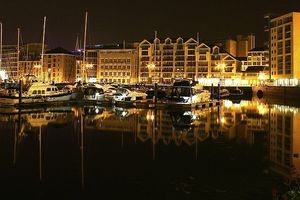On a spiritual-emotional level, Rome and Mecca find common ground in the town of Fatima in Portugal. To quote a Catholic news organisation: ‘Our Lady of Fatima is really Fatima, daughter of the Prophet Mohammed… On 23 October 1995, Iranian television began running stories that the apparitions in Fatima, Portugal, in 1917 were religious phenomena of Muslim origin’.
Readily accepted
Islam teaches that men can achieve favour with God by what they do. Speaking in Fatima as recently as 13 May 2000, the pope proclaimed a message that could be readily accepted by both Muslims and Catholics.
‘Pray, pray much and make sacrifices for sinners’, he said: ‘many souls go to hell because they have no one to pray and make sacrifices for them’. Heroic deeds to win the approval of God appeal to the natural man, including the devout Muslim. But this teaching is light-years away from the gospel of grace.
The pope’s message, and the veneration of heroism in Islam, are a total negation of the gospel, for it is ‘not by works of righteousness which we have done, but according to his mercy [that] he saved us’ (Titus 3:5).
In practice both the Roman and Islamic systems – with a mammoth one billion adherents each – are totalitarian; that is, they promote the synthesis of spiritual and civil power, both in their doctrine and by their cultic practices.
The global hierarchy and infrastructure of Rome, however, is far more developed than that of Islam. It would be all too easy to bring both religions under the Roman Pontiff, who calls himself the Vicar of Christ. This would produce a political powerhouse of enormous consequence.
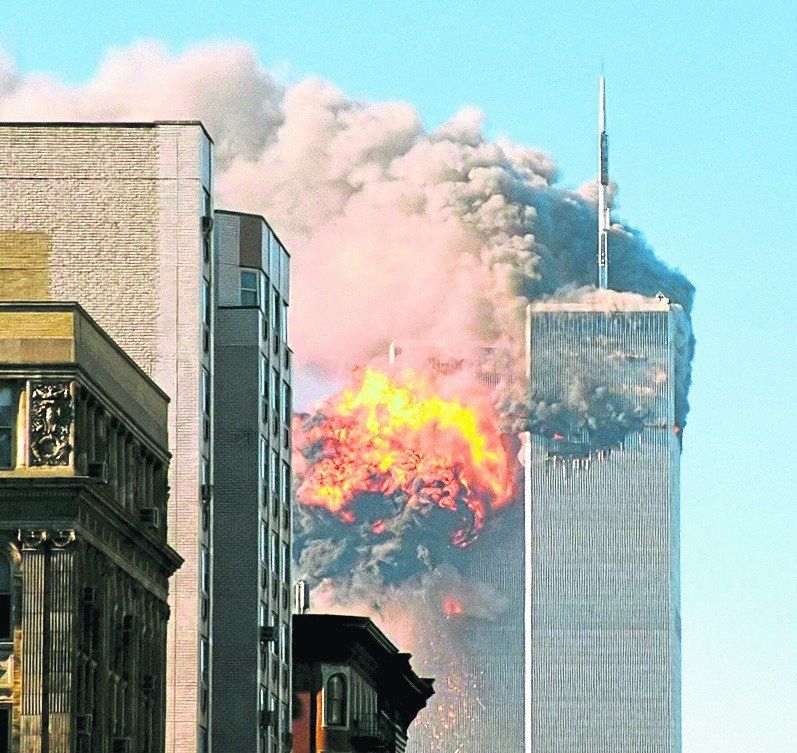
Pope’s message echoed
The process of drawing governments and religions into a global coalition, serving a politically constructed god, has already begun. Rome continues to promote herself as the haven to which all may come for unity.
She accepts Islam as a valid religion and represents the terrorists of September 11 as fallen from their faith rather than upholding its teachings. Nor is she alone in this. President George W. Bush declared: ‘These murderers have hijacked a great religion in order to justify their evil deeds’.
Muslims themselves are promoting the same message. For example, the Associated Press reported that ‘an international Muslim religious ruling endorsed the morality of the US-led military effort against terrorists …
‘The ruling … was written by Sheikh Yusuf al-Qaradawi, the widely respected chairman of the Sunna and Sira Council in Qatar, along with three colleagues in Egypt and one in Syria.
‘The new fatwa cited the words of God in the Qur’an and authoritative Hadith … “All Muslims ought to be united against all those who terrorise the innocents, and those who permit the killing of non-combatants without a justifiable reason”.
‘The five jurists also said Muslims have a duty to speak up about the faith’s anti-terrorism stand.’
This ‘spin’ on Islam’s position is perfectly in line with what the Vatican declared: ‘Together with us [Muslims] adore the one, merciful God, mankind’s judge on the last day’.
The pope, the politicians, and the Muslims continue to keep the history of Islam, and the war-like teaching of the Qur’an, under wraps.
Totalitarian
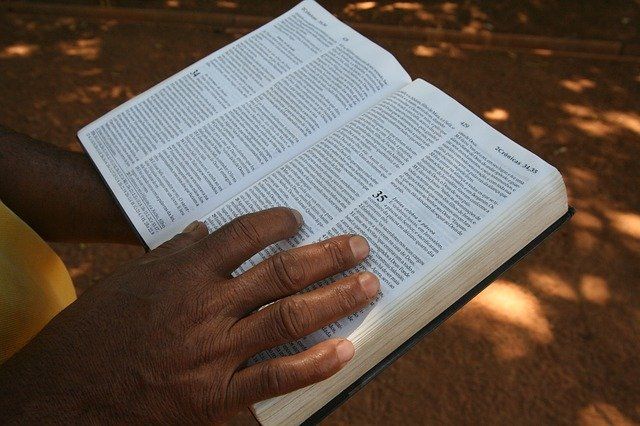
Certainly, the Bible urges us to live at peace with all men. But the pope’s profession of a ‘civilisation of love’ in his rapprochement with Islam is little more than a tactical re-appraisal of opportunities for Rome.
It is the old idol of humanistic sentiment, recycled in the name of religion and offered to the world as a cohesive force, uniting all sincerely religious people in condemnation of the anti-social fanaticism that led to September 11.
The danger for Evangelical people is that, without thinking, they may embrace Rome’s claim to be the true spokesman for Christ on this earth (a lie that is deeply embedded in this new thrust for inter-faith ecumenicity).
The pope is not the first among equals as a bishop. Frankly, he is not even a bishop in the biblical sense of the term. Karol Wojtyla is the head of a totalitarian hierarchy.
Its position as the restored Holy Roman Empire is depicted in the Bible. He is an absolute monarch. He has his own secular government in Vatican City and more property than any other person on the planet.
Worldwide, he has cardinals, ambassadors, a detective force, a legislature, jurisprudence, laws, advocates, taxes, banks, foreign treaties, ambitious plans and policy – far more than any secular prince.
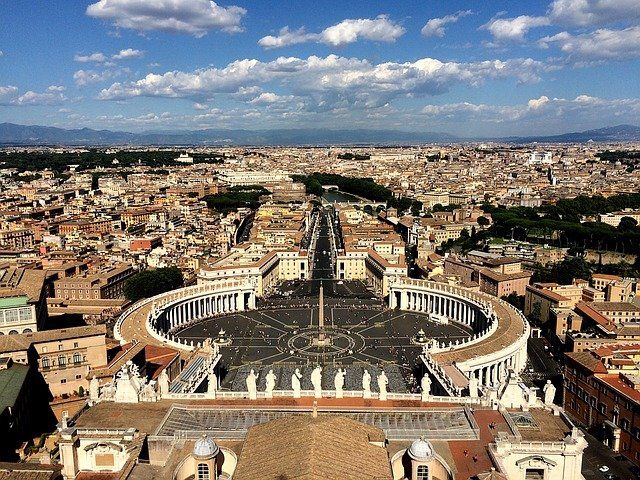
Spiritual commerce
But he differs from other leaders in that his spiritual commerce goes hand in hand with his civil power, claiming international recognition and (what no secular leader would dare to profess) infallibility.
His own laws declare: ‘There is neither appeal nor recourse against a decision or decree of the Roman Pontiff’. This arrogance is not found just in spiritual matters, but in secular affairs also, for he claims supreme power as much as any totalitarian ruler: ‘The First See is judged by no one … It is solely the right of the Roman Pontiff himself to judge … those who hold the highest civil office in a state’.
This is the person who seeks partnership with Islam. His claims echo 2 Thessalonians 2:4 which speaks of one ‘who opposeth and exalteth himself above all that is called God’, and Isaiah 14:14 where we read: ‘I will ascend above the heights of the clouds; I will be like the most High’.
Had not Holy Scripture warned us of this we would rightly be afraid. However, the sovereign God remains sovereign. His purposes in all of this is to purify the Bride of Christ, the pilgrim church on earth.
The Lord Jesus did not appoint the pope as his Vicar on earth. Rather, he and the Father sent the Holy Spirit of truth to fulfil that role.
Betraying the gospel
If contemporary Evangelical leaders and their followers discount and ignore these basic historical facts and biblical prophesies, they are placing themselves outside the stream of historic biblical Christianity.
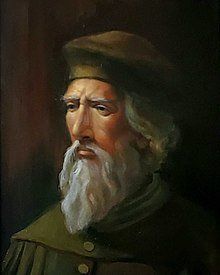
They are willingly divorcing themselves from great men of the faith – Wycliff, Hus, Luther, Tyndale, Calvin, Cranmer, Latimer, Ridley, Bradford, Foxe, Bunyan, Newton, Edwards, Whitefield, Wesley, Spurgeon, Ryle, and Lloyd-Jones, to mention just a few.
It is impossible to hold to the gospel of Christ and simultaneously accord any legitimacy to the papal system.
The Lord of Glory will not allow such behaviour to go unpunished. If Evangelicals continue to fraternise with Rome, it will mark an irrevocable betrayal of the gospel.
They will forfeit their testimony toward the deluded adherents of Romanism and leave them languishing in the clutch of the devil.
The choice before us
In simple terms, those claiming to be loyal to the Lord Jesus Christ must ‘come out of her…that ye be not partakers of her sins, and that ye receive not of her plagues’ (Revelation 18:4). There is no common ground between the religion of apostasy and the gospel of the apostles.
In spite of papal declarations of a truce, and vacuous ‘Evangelical’ alliances with the enemies of Christ, the cosmic enmity remains: ‘I will put enmity between thee and the woman, and between thy seed and her seed’ (Genesis 3:15).
From the moment of the Fall, war has been waged between the children of light and of darkness; between those who adhere to the gospel of grace and God’s righteousness, and those ranged on the side of the Devil, with their man-made religion, their love of accommodation, and their rejection of Christ as the only mediator between man and God.
At this moment of history, ecumenism, with the pope leading the pack, accepts Islam as a great religion. True believers must decide where they stand: ‘if it seem evil unto you to serve the Lord, choose you this day whom you will serve (Joshua 24:15).



